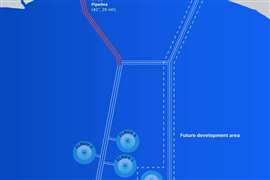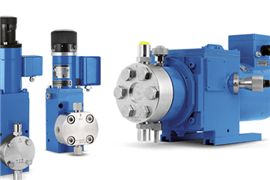OGIC Sponsoring Three Digitalization Projects
September 14, 2018

The Oil & Gas Innovation Center (OGIC) is supporting three new research projects centered on how digitalization can improve efficiency and provide cost savings to the oil and gas industry.
Backed by the Scottish government, OGIC’s goal is to bring top-quality research and development expertise to the oil and gas industry’s innovation challenges, enabling a rapid route to problem-solving and the acceleration of new technology development.
Three companies have teamed up with Robert Gordon University’s (RGU) School of Computing Science and Digital Media to carry out research into the digital transformation of the oilfield.
“Digitalisation is key to a sustainable oil and gas industry,” said Ian Phillips, chief executive officer of OGIC. “Successful automation and integration of a huge range of tasks across many aspects of the exploration and production cycle, are now possible through the ability to rapidly process vast quantities of data in very short periods of time.
“OGIC is supporting three projects researching new approaches to exploration tasks which will reduce costs and increase efficiency and, ultimately, production in a less labor-intensive way.”
DNV GL, the technical advisor to the global oil and gas industry, is developing an interactive programme extracting and processing information from images of piping and instrumentation diagrams and other types of engineering drawings. This will speed up the collection of data for use in a number of technical applications. Phase one of the project was completed with support from The Data Lab, with phase two being primarily supported by OGIC. Working with RGU, phase two will build on the methods and algorithms developed by phase one of the project.
Multidisciplinary data analytics company, ComplyAnts, is working to develop an automated system to manage the compliance process. ComplyAnts selected RGU on the strength of their School of Computing Science and Digital Media research and delivery capabilities. RGU will utilize artificial intelligence to develop an automated system to manage the end-to-end compliance process pipeline. The project aims to deliver a fully functional prototype within twelve months.
Software company IDS is working to develop a data-driven tool to predict task durations, associated risk and NPT. This is phase two of the project. Phase one, which was supported by The Data Lab, saw the development of a natural language processing (NLP) library which classifies engineering terms within a daily report. These are then mapped to allow benchmarking and data analysis. This will reduce the amount of time it takes engineers to work with offset data.
Dr. Eyad Elyan, a leader in machine learning and the project academic lead at RGU, added: “This is another great opportunity which enables our team to apply cutting-edge research in machine learning to solve challenging industrial problems by intelligently mining and exploiting large volumes of structured and unstructured data such as images, text documents and others.
“Such projects have the potential to significantly improve existing business practices and can demonstrate the quality of research and teaching taking place at the university.”
MAGAZINE
NEWSLETTER

CONNECT WITH THE TEAM








